Business
Union Budget 2025: Industry Reactions
Published
1 year agoon
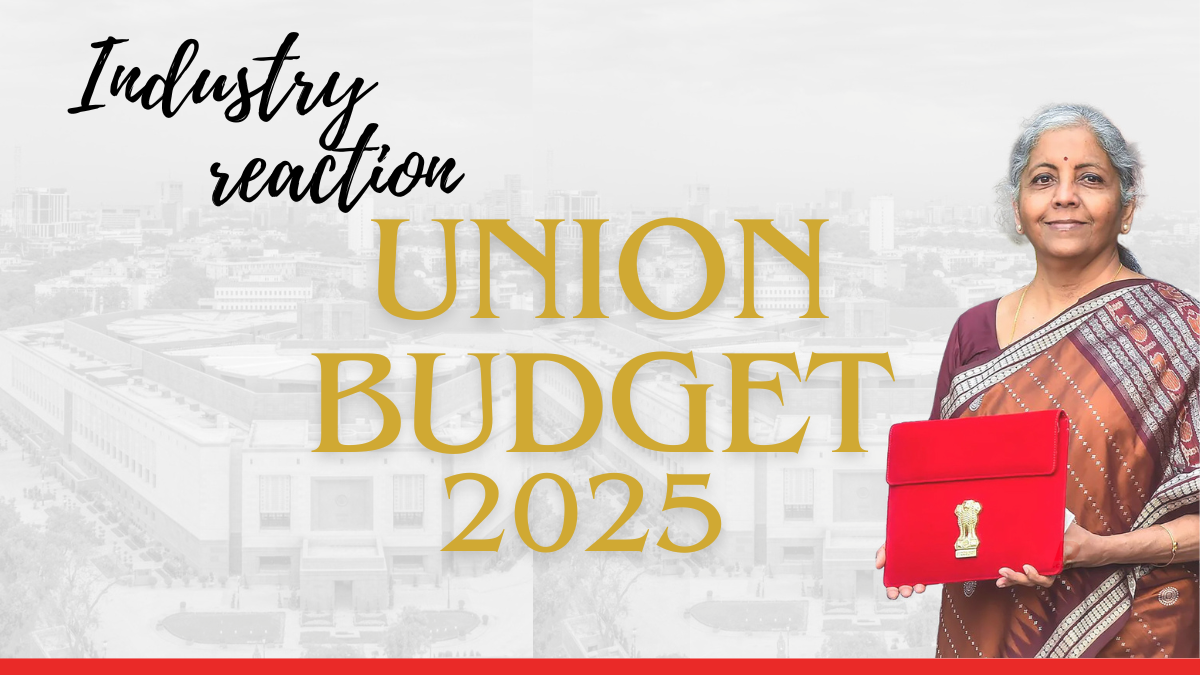
The Union Budget 2025 is one of the most significant events of the year, with the eyes of the nation and indeed the industry glued on New Delhi. Here’s a roundup of industry reactions to the big announcements made in the budget.
Devendra Fadnavis, Chief Minister, Government of Maharashtra
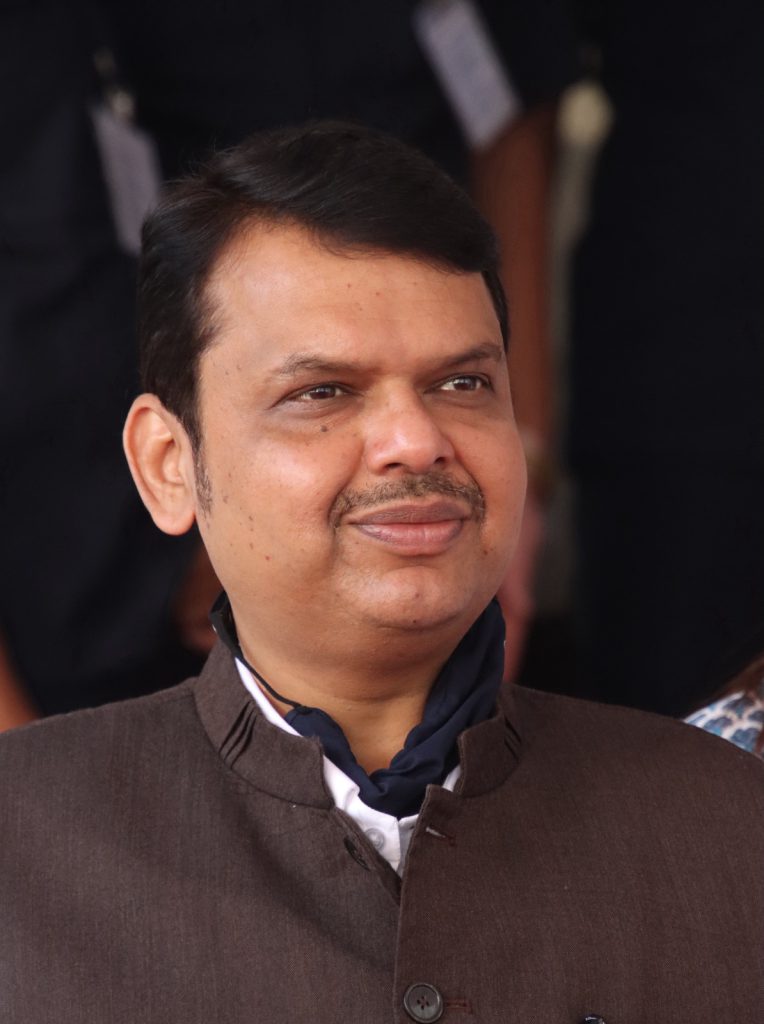
“I thank PM Modi and FM Nirmala Sitharaman Ji for a dream Budget. This will give a massive benefit to the middle class, the newly employed. This will lead to an increase in expenditure. MSMEs will benefit. This will lead to employment generation. A bold step taken, is what I can say about the Budget. It is a milestone for India’s financial progress.”
In the agriculture sector, 100 districts have been identified. Pulses mission – the value chain which will be generated, there will be 100% procurement by the government. For the fisherfolks, credit limit has been increased. In MSMEs, credit enhancement will help. This will lead to maximize employment benefit.”
Shri Jayant Chaudhary, Hon’ble Minister of State (I/C), Ministry of Skill Development and Entrepreneurship (MSDE) and Minister of State, Ministry of Education, Govt. of India

“The Union Budget 2025 reflects a forward-looking vision that not only strengthens economic growth through tax reforms but also prioritizes key sectors driving India’s future. From enhancing Kisan Credit Card limits and boosting cotton productivity to empowering startups and MSMEs through credit guarantees, these measures will accelerate entrepreneurship and rural prosperity. The focus on deep tech funding, AI-driven education, and five Centers of Excellence in skills underscores India’s commitment to a future-ready workforce. Additionally, expanding medical education, strengthening cancer care at district hospitals, and ensuring social security for gig workers demonstrate a balanced approach to inclusive development. This Budget paves the way for a more skilled, resilient, and self-reliant India.”
Adhil Shetty, CEO, Bankbazaar

- “Big relief for taxpayers! Under the new tax regime, income up to Rs 12 lakh will now be tax-free, significantly reducing the financial burden on the middle class. This bold move enhances disposable income, encourages spending, and promotes economic growth. By simplifying taxation and easing compliance, the government reinforces its commitment to a taxpayer-friendly system. This reform not only benefits salaried individuals but also supports businesses and investments, driving overall prosperity. With a focus on financial empowerment and ease of living, this tax relief is a major step toward a more inclusive and growth-oriented economy.”
Tapan Singhel, MD & CEO, Bajaj Allianz General Insurance
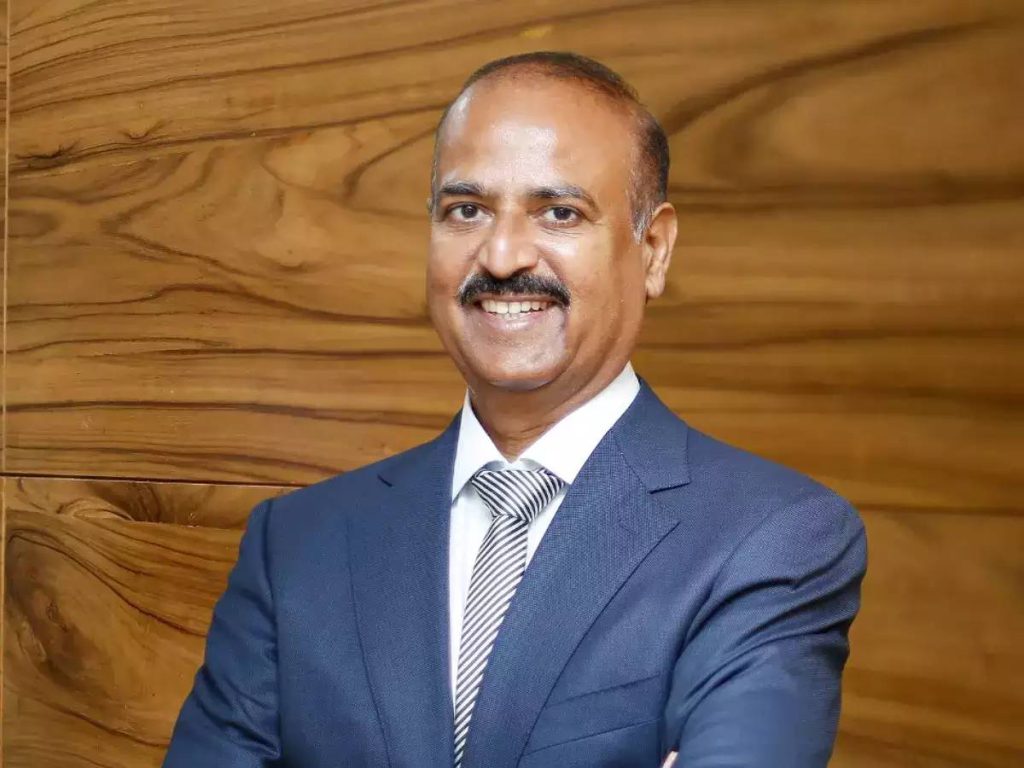
- “The Union Budget 2025-26 is a forward-looking blueprint for growth, resilience, and inclusive development. The focus on strengthening the middle class through enhanced tax exemptions will put more money in people’s hands, boosting consumption, savings, and overall economic momentum. Investments in infrastructure, financial sector reforms, and digital transformation will further strengthen India’s position as one of the fastest-growing economies in the world.
A key highlight is the opening up of 100% FDI in insurance, which will foster greater competition, bring in global expertise, and drive deeper penetration across the country. With India’s vast and diverse population, the need for more insurers is clear—just as developed nations have thousands of players catering to varied needs. Increased competition will enhance customer choice, service quality, and awareness, making insurance more accessible and effective for all.
This Budget reflects a commitment to long-term growth while ensuring financial security, innovation, and economic empowerment for individuals and businesses alike. It is a step towards a more resilient and prosperous India.”
Shailesh Chandra, President, SIAM
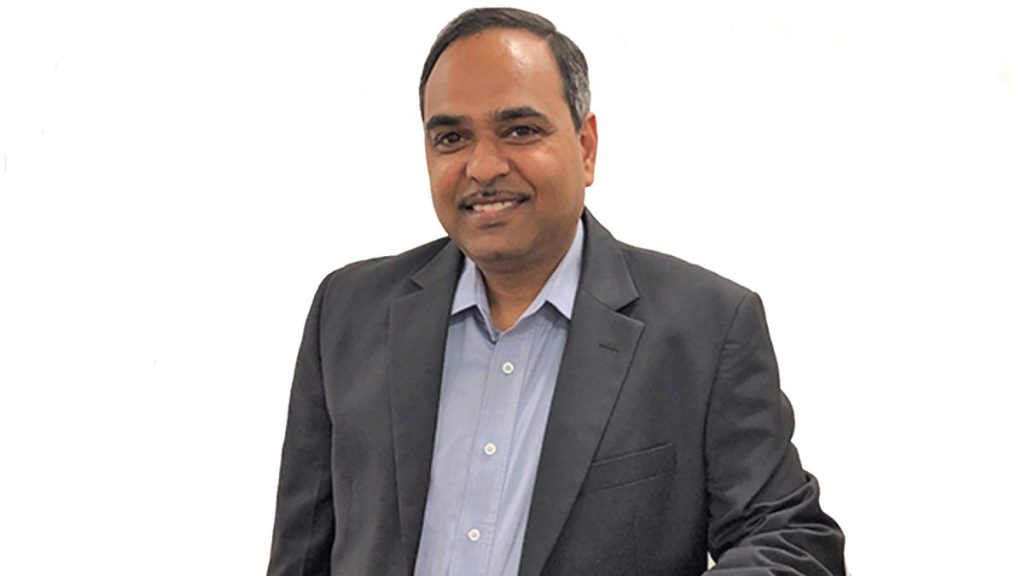
“We welcome this budget which is focused on long term sustained economic growth. The specific focus on rural prosperity and agriculture, coupled with reforms in the Personal Income Tax, is likely to have a positive effect on the Auto Industry, and will help in creating demand.
As the Auto Industry transits into cleaner powertrains, in line with the Hon’ble PM’s vision on sustainable mobility, it will specifically benefit from the National Manufacturing Mission, which supports clean tech manufacturing for batteries, motors and controllers. Furthermore, the exemption of critical minerals (e.g. Cobalt, Lead, Zinc etc.), scraps of Lithium-ion battery, and 35 additional capital goods from customs duty, will help create a strong EV ecosystem in the country.
The Export Promotion Mission and support for integration with global supply chains are critical initiatives that will enable Indian manufacturers to expand export footprints, and align with global supply chains.The Auto Industry is also thankful to the Government for creating a high-level committee for regulatory reforms, aimed at reviewing regulations, certifications, licenses, and permissions, as this will certainly help in ease of doing business in our sector.”
Rajesh Mehta, CCSO & ED, LILADHAR PASOO FORWARDERS PVT LTD

“It is a well-designed and planned Union Budget 2025-26.
- Demand stimulus enhances consumption.
- Capex and quality investment to make India self-reliant.
- Fiscal discipline opens credit growth.
- Make for world by India.
- Preparing India to become export surplus.
Bihar is like a caged tiger. It can grow like UP who are now aspiring to achieve USD 3 tn. GDP. With even five states growing, we are near to becoming a USD 45 tn. economy by 2047.”
Anuj Puri, Chairman, ANAROCK Group
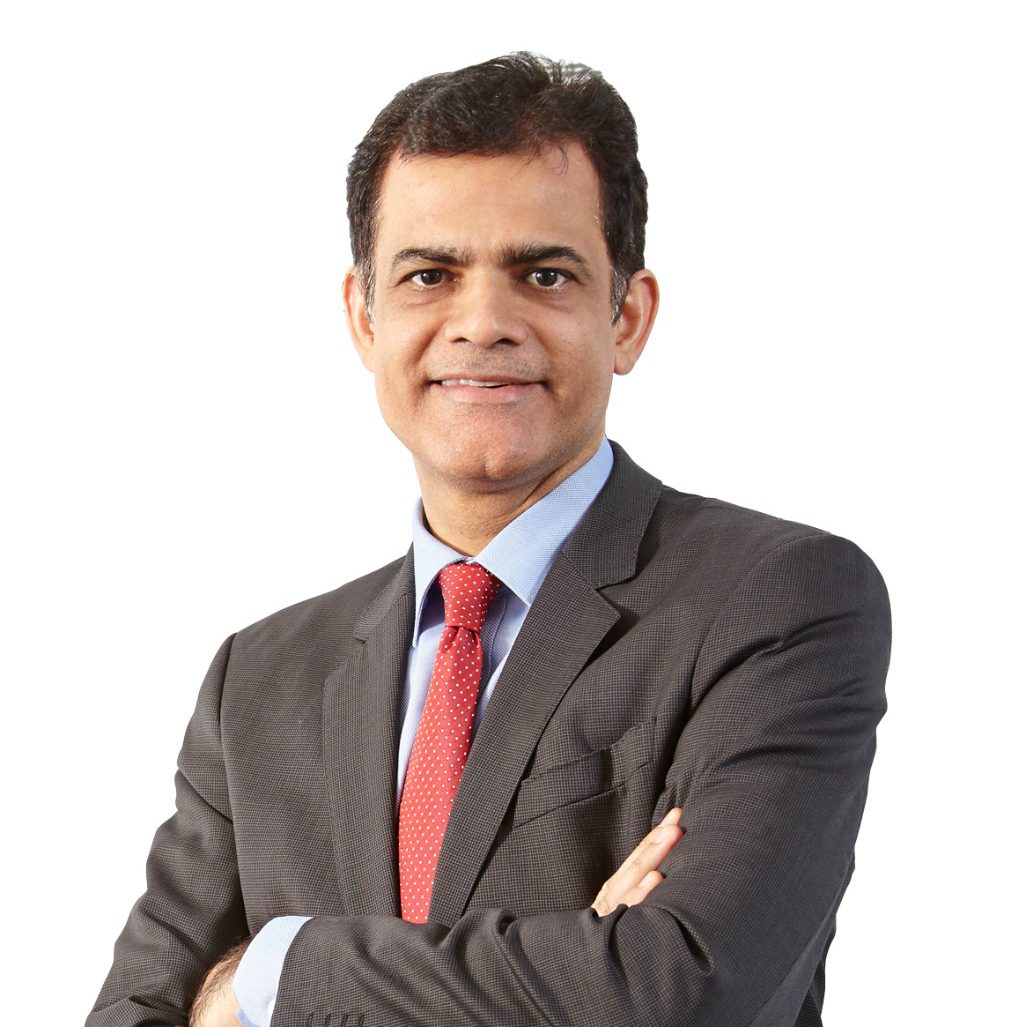
“The Union Budget focused on economic expansion, infrastructure development, MSMEs, futuristic cities, and middle-class welfare and brings substantial relief for the middle class. It also aims to stimulate rural consumption – an essential step toward unlocking India’s economic potential.
From a real estate perspective, the budget delivers both direct and indirect benefits, acting as a catalyst for growth. However, a notable shortfall was the absence of major announcements for the affordable housing sector, leaving stakeholders disappointed.
Despite this, the budget overall remains strong and growth-oriented, with a clear focus on economic development and enhanced consumption.”
Anirudh A. Damani, Managing Partner, Artha Venture Fund

“The announcement of a ₹20,000 crore investment to drive private sector-led research, development, and innovation is a game-changer for India’s deeptech ecosystem. Finance Minister Nirmala Sitharaman’s focus on fostering cutting-edge startups through a potential Deep Tech Fund is a step in the right direction. Given the capital-intensive and long-gestation nature of deeptech ventures, we hope this fund is structured as a Fund of Funds (FoF), allowing experienced deep tech-focused fund managers to deploy capital effectively.
The initial ₹10,000 crore FFS commitment mobilized over ₹91,000 crore in startup funding—this deeptech initiative could catalyze ₹1-1.5 lakh crore in new investments into India’s most transformative sectors, from space tech to AI and advanced manufacturing. India’s deeptech boom is just getting started, and with the right funding mechanisms in place, we are poised to create globally competitive deeptech giants.
The renewal of the ₹10,000 crore commitment to the Fund of Funds for AIFs is a significant step forward for the Indian startup and investment ecosystem. The initial ₹10,000 crore commitment catalyzed ₹91,000 crore in investments, and I fully expect this fresh infusion to attract an additional ₹1 lakh to ₹1.5 lakh crore in capital. This initiative will provide much-needed growth capital to early-stage startups, further strengthening India’s position as a global innovation hub. We are supremely excited about this development and look forward to actively participating in this next wave of investment momentum.”
Nirav Choksi, CEO & Co-Founder, CredAble

- “Overall the budget is a strong and stable one—a positive step towards India’s development goals—which is the need of the hour. The credit schemes for the MSME sector and startups such as the customised credit cards and a dedicated INR 10,000 crore Fund of Funds will be critical for deepening financial inclusion. However, the focus should now shift towards simplifying access to these schemes, particularly for businesses in tier 2 and 3 cities. With the introduction of the DPI platform—Bharat Trade Net—we’re seeing a proactive stance to digitalise and streamline trade financing. While the KYC registry overhaul is a great move, its successful implementation will be key. This budget is a progressive roadmap for economic growth, with a focus on improving the ease of doing business and ensuring a more conducive environment for MSMEs and startups with targeted financial schemes and a clear focus on improving access to working capital. Backed by a dedicated manufacturing mission, and climate-friendly manufacturing initiatives—India is taking decisive steps to strengthen its industrial competitiveness on the global stage.”

- “The budget rightly focuses on expanding financial support for MSMEs, a sector crucial in positioning India as a global manufacturing hub and responsible for 45% of the nation’s exports. Budget 2025 broadens MSME eligibility, increasing turnover up to INR 500 crore. While this, along with an INR 10 crore credit guarantee scheme for MSMEs, is promising, how quickly and efficiently businesses can secure these funds will determine its true impact. Additionally, DPI-enabled export financing, combined with term loans of up to INR 20 crore for well-run export-oriented MSMEs, will empower businesses to step into international markets. Providing the right means to scale would also include building manufacturing and export competitiveness through digital trade networks and strong buyer-supplier ecosystems.”
Manju Yagnik, Vice Chairperson, Nahar Group and Senior Vice President, NAREDCO Maharashtra

“The budget presented by FM Nirmala Sitharaman is indeed middle class supporting budget which will pave the way for further investment in housing in India. With zero Income Tax till ₹12 lakh salary under New Tax Regime will substantially reduce taxes of middle class and leave more money in their hands, boosting household consumption, savings and investment. The middle class will will have more disposable income—empowering them to save, invest, and fulfill their dream of owning a home.” The government also pushed for housing security which got a major boost with 50,000 homes completed under the SWAMI scheme, 40,000 more will be added, with establishment of a ₹15,000 crore SWAMI Fund 2 to accelerate real estate projects. More affordability, more investment, and a stronger middle class.”
Biju Davis, Senior Vice President, Engineering, Model N

“With the global digital economy expanding at breakneck speed, proactive investments by India in deep-tech, AI-driven solutions, and sustainable digital infrastructure are being laid to herald transformative growth. The Union Budget 2025-26 aims to further strengthen India’s innovation ecosystem by encouraging collaboration between industry and academia, thereby hastening progress in AI, quantum computing, and next-gen technologies.
A future-ready AI policy must be an equilibrium of innovation and accountability in a manner that technological progress remains inclusive, unbiased, and in line with the broader goals of society and economy. Investments in responsible AI frameworks, ethical governance, and cybersecurity will shape the future as industries continue to evolve through AI.
The road ahead is promising and, with the right ecosystem in place, promises India to emerge as a world leader in AI-powered digital transformation.”
Bhanu Prakash Kalmath S J, Partner and Healthcare Industry Leader, Grant Thornton Bharat

“Broadband connectivity will be extended to all Primary Healthcare Centres. According to the Economic Survey Report 2024-25, 5G services are now available in 779 out of 783 districts. This will support telemedicine (e-Sanjeevini) and enable technology and AI-driven medical solutions across India, contributing to the achievement of Universal Health Coverage.”
Bhaskar Majumdar, Managing Partner, Unicorn India Ventures

“Given that deeptech is being seen as an area for growth at the national level, with a China +1 macro and creation of the PLI/DLI schemes of the government, this is a great step. The Government has created this FoF for deeptech to enable funds to invest in deeptech and back highly innovative startups that can put India in a competitive global AI race. Hand in hand, in continuation of the R&D fund of last year, the Government has enhanced the same for enterprises to enable technology innovation. This shows that the Govt realises the future innovation is the heart of economic growth as the global wars are fought around AI and Semiconductors”
Mayuresh Raut, Managing Partner, Seafund

“The increase in credit guarantee for startups from Rs 10 crore to Rs 20 crore is a much needed demand that has been finally accepted. This will not only enable startups to have access to debt capital it will also help them scale faster with less equity dilution. Hence, it will lead to a virtuous cycle of higher top line, less equity dilution, better valuation and better fundraise. As the budget commenced, the FM highlighted that they would like to see 70% women participation in economy building, thus, the addition to credit guarantee will ensure a timely boost as more women entrepreneurs is the need for our ecosystem.
With regards to the earlier 3 Centers of Excellence, this along with Krishi Dhan Dhanya program will bring the best of AI practices to the agri-tech startups ecosystem and breed further innovation. Our view is that this requires large patient capital, but aligns us with the renaissance and renewed interest in nuclear energy that is happening all over the world, led by the US. Definitely opens the sector to private investors. Push for data centres consuming huge powers will need nuclear power which will further fuel our AI aspirations”
Rodrigo Vargas, Vice President, AI and LLM Engineering, Encora

“This diversity in AI development is particularly promising for countries like India, which combine deep technical talent with distinct use-case requirements. Rather than creating technological divides, I believe we’re entering an era of distributed AI innovation where different regions can leverage their unique strengths. For instance, India’s vast pool of AI talent and experience in scaling digital solutions positions it well to develop specialized AI applications that address specific market needs.
At Encora, we see this evolving landscape as an opportunity to bridge technological ecosystems, combining best practices from different regions to deliver more robust AI solutions. The key lies not in viewing AI development as a zero-sum game, but in fostering collaborative innovation that benefits from diverse global perspectives and talent pools.”
Varun Tangri, Founder & CEO, QueueBuster

“The budget represents a substantial boost to firms across sectors, particularly MSMEs. The increased classification limit will allow them to expand operations and drive economic growth. The introduction of customised credit cards for micro enterprises will enhance access to tailored financial solutions, ensuring smoother cash flow and growth opportunities. Additionally, the ₹10,000 crore corpus for MSMEs and startup term loans will provide much-needed financial support, fostering innovation and expansion. This budget also strengthens the retail industry, creating a more dynamic and inclusive business environment. With these reforms, India is poised for rapid growth, job creation, and a thriving entrepreneurial ecosystem.”
Aman Moudgil, Director – Gilco Global
“The government’s move to increase investment and turnover limits for MSMEs is a positive step, as it will boost their working capital, facilitating growth and expansion. This will empower MSMEs to scale up, innovate, and generate more employment opportunities, ultimately contributing to the country’s economic growth and development.”
Vinu Warrier, Managing Partner & Founder, eduVelocity
“The government’s move to increase investment and turnover limits for MSMEs is a positive step, as it will boost their working capital, facilitating growth and expansion. This will empower MSMEs to scale up, innovate, and generate more employment opportunities, ultimately contributing to the country’s economic growth and development.In terms of medical education, there is certainly a need in our country for higher quality healthcare.
In addition to adding more seats in medical colleges, the govt has also chosen to invest in healthcare infrastructure, wherein we hope that this additional investment will focus on infrastructure, resources, facilities, and technologies because it is not sufficient to simply add seats, there is also an urgent need to ensure a big rise in the consistency in the quality of medical education that our young aspiring doctors receive, regardless of whether they are situated in a metro or in a small town, etc.”
Neeti Sharma, CEO, Team Lease Digital

“The Urban Challenge Fund, announced in India’s Union Budget 2025 is a welcome move.
This will help to reshape cities into dynamic growth hubs. By funding innovative redevelopment and infrastructure projects- especially in water, sanitation, and public spaces-it will encourage local governments to build smarter, greener, and more sustainable urban centers, which will thereby attract more economic growth. This initiative will not only improve liveability but also attract businesses, create jobs, and strengthen local economies, making cities key drivers of India’s economic transformation.”
Masood Mallick, Managing Director & CEO, Re Sustainability Limited (ReSL)

“The budget outlines key initiatives to support sustainability and circularity in India.
The removal of custom duty on waste and scrap from critical minerals, including Antimony, Beryllium, Cobalt, and Lithium-Ion batteries, aims to boost recycling and enhance use of circular minerals in manufacturing. A policy for recovery of critical minerals from tailings or by-products of mining can also emerge as a significant enabler for India’s transition to a more circular economy.
Funds have also been allocated to strengthen the domestic manufacturing of clean technologies like solar PV cells, EV batteries, and wind turbines, which will enhance the country’s renewable energy infrastructure.
The ₹1 lakh crore Urban Challenge Fund focuses on sustainable urban development, addressing water management, sanitation, and city redevelopment.
Finally, the commitment to developing 100 GW of nuclear energy by 2047 furthers India’s energy transition strategy, contributing to long-term sustainability.
These measures have the potential to significantly accelerate our sustainability and circular economy journey, towards our shared goal of a Viksit Bharat by 2047.”
Kishore Karumanchi, CEO, aciana
“The Union Budget 2025 underscores a decisive step toward making healthcare more accessible, technology-driven, and inclusive. The exemption of 36 life-saving drugs from basic customs duty will provide much-needed relief to patients battling chronic and rare diseases, ensuring affordability of critical treatments. Additionally, the expansion of broadband to all Primary Healthcare Centres and the promotion of AI-driven medical solutions align with our mission to harness technology for predictive, personalized, and data-driven healthcare. The government’s focus on medical tourism and extending healthcare coverage to gig workers through the e-Shram portal further highlights a progressive approach to strengthening India’s healthcare ecosystem. These initiatives will drive innovation, enhance patient outcomes, and bring us closer to achieving universal health coverage.”
Dr. Rumki Majumdar, Economist, Deloitte India

“Inflation has been a persistent problem, and the government has recognized the pressing need to address food inflation, which has been a significant contributor to rising overall inflation. Among the key drivers of this inflation are pulses and vegetables, which have seen consistent price increases in recent times. Prices of pulses have been a concern and targeted initiatives such the National Mission on Pulses is a crucial step aimed at boosting the production of pulses, ensuring better supply, and stabilizing prices.
Additionally, a comprehensive program for the production of vegetables and fruits has been put in place, focusing on improving yields, enhancing supply chains, and reducing price volatility.
The National Mission for High-Yielding Seeds is the continued effort from past budget will go a long way to improving agricultural productivity and resilience.
Focus on employment was expected, and the announcements are all about ensuring a broad-based and inclusive growth with a focus on agriculture, MSMEs, and women.
Footwear, leather, toys (Made in India), Food processing will push this sector to create employment. Providing security to gig workers is also a great measure to give recognition and ensuring a better earnings for this segment.”
Himanshu Pandey, CEO and Founder, Segumento

“The government’s new initiative to expand the Fund of Funds (FoF) and establish a Deeptech Fund of Funds marks a transformative shift for India’s startup ecosystem. By significantly increasing the capital pool available to startups, this move directly addresses one of the key challenges emerging businesses face—access to funding. It will not only enhance liquidity for startups across various sectors but also ignite a new wave of innovation, empowering entrepreneurs to scale their technologies and bring cutting-edge solutions to market. The focus on Deeptech is particularly exciting for AI and data intelligence companies like ours, as it will accelerate the development of advanced technologies with the potential to reshape industries and drive global change. The government’s national guidance framework to support Global Capability Centres (GCCs) will also provide crucial infrastructure and foster international collaborations, strengthening India’s global competitiveness in the tech space.
Equally impactful is the expansion of the PM Research Fellowship Scheme, which will offer 10,000 scholarships to support research at IITs and IISc. This initiative will be instrumental in nurturing the next generation of tech leaders and researchers, ensuring India remains at the forefront of technological innovation. With a more robust and supportive environment for both research and startup growth, these strategic efforts position India to become a global hub for technological excellence. For those of us working in the tech ecosystem, these measures represent a pivotal moment of growth and opportunity, paving the way for groundbreaking innovations and international success.”
Rajiv Kumar, Vice Chairman, DS Group

“With the Union Budget 2025-2026, the Government has taken strides towards realizing the Viksit Bharat vision by 2047. The agenda laid out by the FM will address and uplift several economic and social reforms in India. The forgoing of ₹1 lakh crore in direct taxes and full tax exemption up to ₹12 lakh income under the new regime is expected to boost consumer spending, benefiting sectors such as FMCG, automobiles, and retail. The middle class and salaried professionals will have more disposable income, driving demand in these areas. It is a balanced budget for corporates as well as individuals and will have a multi-year effect going forward, supporting overall growth and encouraging inclusive development and private investment. Emphasis on digital infrastructure and connectivity enhancement is another key positive. Increasing foreign direct investment (FDI) in the insurance sector from 74% to 100% will boost the sector’s growth by stimulating investment across the board.”
Anand Jain, Co-Founder and Chief Product Officer, CleverTap

“The Union Budget 2025 signals a strong push towards innovation, the startup ecosystem, and technology-led growth through ‘Sabka Vikas,’ over the next five years. The government’s focus on expanding access to capital, simplifying regulations, and supporting skill development will further strengthen India’s startup ecosystem. The new Fund of Funds with an expanded scope, along with an additional ₹10,000 crore contribution, will strengthen the funding pipeline for startups and bridge capital gaps, while the increase in credit availability from ₹10 crore to ₹20 crore provides much-needed liquidity for early-stage startups.
Meanwhile, raising investment and turnover limits for MSME classification will help enterprises adopt advanced technologies, expand their operations and compete at a global level.
The introduction of a Deep Tech Fund and the PM Research Fellowship is a strong step towards enabling both technical and non-technical innovators to bring disruptive ideas to life. Investments in a Centre of Excellence for AI in Education and the establishment of five National Centres of Excellence for Skilling, along with global skilling partnerships, align with the Viksit Bharat vision. This will equip India’s workforce for the future, ensuring we remain globally competitive in high-growth sectors like AI and deep tech.
By introducing these forward-looking initiatives, coupled with revised income tax slabs that empower the middle class and drive consumption – a long-overdue relief to millions of individuals – the budget lays a strong foundation for making India a thriving hub for startups and technology-led innovation.”

“This year’s Union Budget 2025 signals a progressive shift in India’s startup landscape, particularly for research-driven and deep-tech ventures. The introduction of a ₹10,000 crore corpus, combined with structured loan mechanisms and a 1% moderated guarantee fee, addresses a critical gap in the funding lifecycle of high-impact startups. By prioritizing 27 key sectors, the government is ensuring that innovation is directed toward strategic areas essential for India’s self-reliance and global competitiveness. For startups in AI, quantum computing, space tech, and biotech, access to patient capital and sector-specific support is crucial for long-term scalability. At DST MATH, we remain committed to fostering research-led innovation, bridging the gap between academia and industry, and supporting visionary entrepreneurs who are building solutions for the future. This initiative is a step in the right direction, and we look forward to working closely with the ecosystem to drive impactful outcomes.”
Yatin Gupte, Chairman & Managing Director, Wardwizard Innovations & Mobility Ltd.

“We welcome the policies stated in Union Budget 2025-26 by the Hon’ble Finance Minister, which gives a strong push towards EV adoption, accelerating the development India’s electric vehicle ecosystem. The reduction in customs duty on lithium and other important raw materials will significantly lower input costs for lithium-ion battery manufacturing, making EVs more affordable to consumers while boosting domestic production. The introduction of a national manufacturing mission for clean tech industries is another commendable move. By strengthening the ecosystem for EV batteries, motors, and controllers, this initiative will accelerate India’s transition to sustainable transportation. The recognition of MSMEs as the ‘2nd engine’ of economic growth in the Union Budget 2025 will boost sectoral confidence. The fiscal policies stated to support MSMEs will have a multiplier effect on various sectors, including accelerating India’s e-mobility revolution. We are confident that the expanded tax bracket will enhance the purchasing power of the middle class, which will positively impact EV industry in India.”
Saransh Chaudhary, President, Global Critical Care, Venus Remedies Ltd and CEO, Venus Medicine Research Centre

“The Union Budget 2025 has brought several positive developments for the pharma industry, including full exemption from basic customs duty on 36 lifesaving drugs and concessional duty of 5% on 6 more. The government’s decision to fully exempt specified drugs under Patient Assistance Programmes (PAPs) and add 37 new medicines along with 13 additional PAPs will significantly improve access to critical medicines and reduce treatment costs for patients in need.
The announcement to set up Day Care Cancer Centres in all district hospitals over the next three years—starting with 200 in 2025-26—is a commendable step in strengthening cancer care infrastructure. This initiative will provide patients with first-hand assistance from healthcare professionals while easing the burden on tertiary hospitals and ensuring timely treatment closer to home. While these are welcome steps, we had hoped for a stronger push towards pharmaceutical R&D. Increasing allocation beyond the current 1% of GDP, raising the weighted tax deduction for R&D expenditure from 100% to 200%, and swiftly rolling out the Research Linked Incentive scheme remain critical to fostering drug innovation. We urge the government to consider these priorities to further bolster research in India’s pharma industry and healthcare ecosystem.”
Yash Kela, Founder, Singularity Ventures

“The Union Budget 2025-26 reinforces India’s commitment to startups, deeptech, and sustainable innovation. The ₹10,000 crore Fund of Funds for Startups and the proposed Deeptech Fund will provide vital financial backing, while 10,000 research fellowships at IITs and IISc will strengthen the design first , product + service export ecosystem we want to build in the country. The focus on clean tech manufacturing—spanning solar PV cells, EV batteries, electrolyzers, and wind turbines—positions India as a global leader in climate-friendly industrial growth. Additionally, the ₹2 crore funding scheme for first-time women entrepreneurs is a significant step toward fostering inclusive business leadership.At Singularity , we believe these bold initiatives that will accelerate startup growth, drive deeptech breakthroughs, and propel India toward global innovation leadership.”
Viswanath PS, MD & CEO, Randstad India
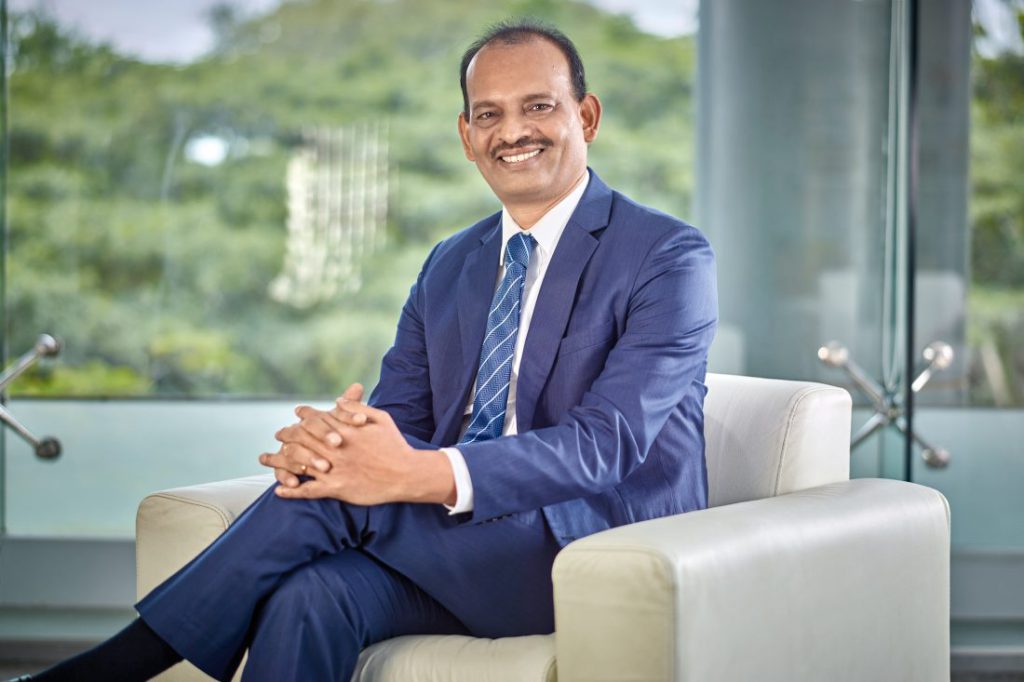
“The Union Budget 2025 reaffirms the government’s commitment to a ‘Budget for All’—driving economic growth, empowering the middle class, and accelerating job creation. The emphasis on catalytic investments in key sectors, particularly manufacturing, underscores India’s ambition to establish itself as a global production hub.
The targeted support for MSMEs, including higher threshold limits and enhanced credit guarantees, is a crucial step toward fostering grassroots development and job creation. At the same time, a strong focus on labour-intensive sectors will provide the much-needed push to address the unemployment challenge in the country.
Additionally, the establishment of a high-level committee to streamline non-financial sector regulations and the introduction of the Investment Friendliness Index for states mark significant progress in enhancing ease of doing business.
For the middle class, the introduction of revised tax slabs provides meaningful relief, reducing the tax burden and driving higher domestic consumption, savings, and investments. Moreover, the incentives announced for one crore gig workers mark a major step towards fostering inclusive employment, recognizing their growing role in the economy.
By prioritizing industrial expansion and household empowerment, this budget reinforces India’s socio-economic resilience. Randstad India believes this balanced approach will accelerate the country’s journey toward a Viksit Bharat—a developed India built on innovation, inclusivity, and a future-ready workforce.”
Jairam Sridharan, MD, Piramal Finance
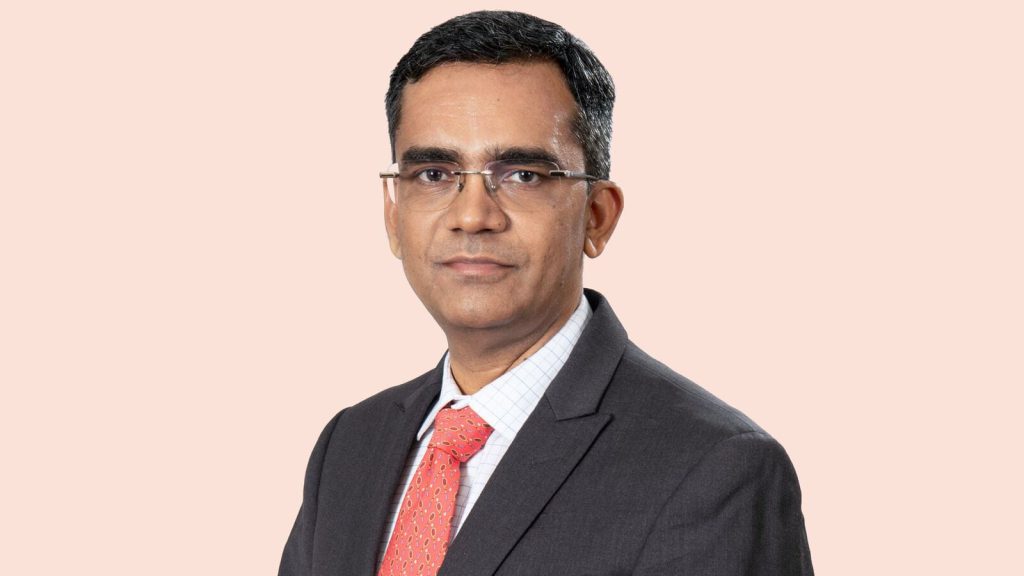
“For the past few years, the Government has been the main actor in driving GDP growth. This budget is an invitation from the government – for private consumption and MSME sector to step forward and take a lead. A prudent borrowing plan for next year, contained spending and adherence to fiscal discipline offers space to fast track a change in monetary policy stance. So overall – the budget lays the groundwork for a rate cut cycle to start, and offers mechanisms for consumption and private sector growth to pick up.”
Pushkaraj Bidwai, CEO of People Matters

“The Union Budget 2025-26 makes decisive strides toward strengthening India’s workforce and economic resilience. By raising the income tax exemption limit to ₹12 lakh, the government is putting more disposable income in the hands of over 2 crore professionals, fostering greater financial security and driving consumer spending, catalysing economic activity. But beyond tax relief, the real transformation lies in its commitment to job creation and skilling.
The ₹50,000 crore boost in the credit guarantee scheme for micro-enterprises, along with expanded MSME investment and turnover thresholds, is expected to generate over 30 lakh new jobs, particularly in manufacturing and services. Sector-specific allocations, such as ₹2,500 crore for the footwear and leather industry, reinforce the intent to create large-scale employment while strengthening India’s global competitiveness.
A key differentiator this year is the establishment of National Centres of Excellence for Skilling, designed to bridge the persistent gap between traditional education and evolving industry demands. Unlike previous skilling initiatives, these Centres will focus on high-growth sectors like AI, semiconductor design, and renewable energy, ensuring India’s workforce is future-ready. Coupled with a ₹10,000 crore investment in DeepTech, expanded research fellowships at IITs and IISc, and the creation of a National Institute of Food Technology in Bihar, the government is aligning its vision with industry needs, fostering both innovation and regional employment.
While the intent is strong, execution will determine impact. The success of these initiatives hinges on industry collaboration, agile policymaking, and the ability to translate investments into real employment opportunities. If implemented effectively, these measures could redefine India’s position as a global hub for talent, technology, and manufacturing.”
Alok Dubey, Chief Finance Officer, Acer India

“The Union Budget 2025 takes a decisive step toward strengthening India’s economy with a strong focus on innovation, digital transformation, and manufacturing excellence. The significant tax cut, with exemptions up to ₹12 lakh under the new regime, will provide much-needed relief to the middle class, boosting disposable income and driving greater consumer spending, savings, and investments. Additionally, the government’s continued push for technology and infrastructure development will create new opportunities for businesses while reinforcing India’s position as a global manufacturing and technology leader. At Acer, we welcome these forward-looking initiatives and remain committed to supporting India’s vision for self-reliance and sustainable economic growth.”
Ganesh Raju, Founder, Turbostart Global
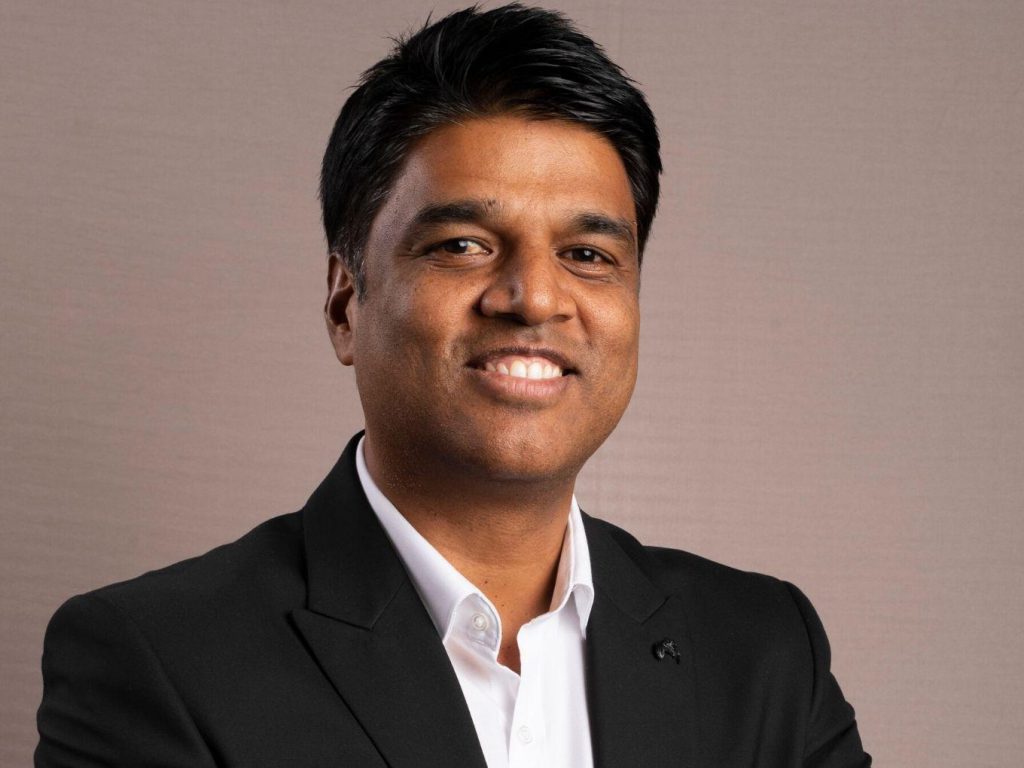
“The 2025 Budget presents a pragmatic approach to startup growth. The new ₹10,000 crore Fund of Funds, combined with streamlined business registration processes, shows that we’re moving beyond mere funding to creating an enabling environment for innovation. The emphasis on credit access, particularly the 1% guarantee fee for loans up to ₹20 crore in 27 key sectors, could be transformative for startups working on capital-intensive solutions in manufacturing, deep tech, and other strategic sectors. This is crucial as we see a shift from pure digital plays to more complex, innovation-driven ventures. However, the real test lies in implementation. While compliance reduction is a step in the right direction, startups need a more fundamental ease of doing business – faster fund deployment, clearer regulatory frameworks, and simpler tax structures. These are critical for early-stage ventures where time and resources are always at a premium. As we look ahead, these measures could help India move beyond being just a large startup hub to becoming a global innovation powerhouse.”
Aneel Gambhir, Chief Financial Officer, DTDC Express Ltd.
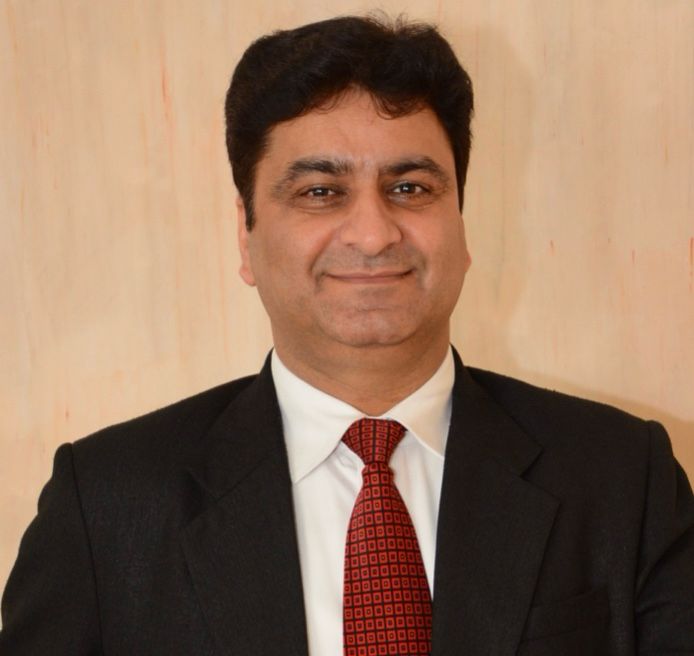
“It is a Growth-Oriented Budget with Strong Middle-Class Focus. The Union Budget 2025 balances infrastructure growth, social welfare, tourism, tax rationalization, and middle-class relief. While the proposals are promising, their impact will depend on effective execution, policy stability, and ease of implementation.
Anindith Reddy, Managing Director & Co-founder, Enliva

“With a focus on strengthening MSMEs and advancing Industry 4.0, Union Budget 2025 has paved the way for India’s global manufacturing leadership. The push for technological upgradation and better capital access will empower businesses to scale efficiently. Breaking trade barriers to help promote Make in India will surely lead us to a Viksit Bharat. We are excited for the progressive approach and economic expansion at an unprecedented pace.”
Deep Vadodaria – CEO of Nila Spaces

“The Union Budget 2025 presents a strong focus on urban development and real estate growth. The 1 Lakh crore Urban Challenge Fund and the SWAMIH Fund 2 with Rs 15,000 crore will help address infrastructure gaps and provide relief to lakhs of homebuyers. The modified Udaan scheme, expanding to 120 new destinations, will boost connectivity and drive real estate sales by encouraging migration to new areas. A notable point, with the income tax exemption for earnings up to Rs 12 lakhs will also help the working class save more, potentially enabling them to invest in their dream homes. Overall, the budget takes significant steps toward a more connected and financially secure India.”
You may like
-


Here’s why Adani is betting $100 Billion on Data Centers
-


Sterlite Group appoints Sumil Mathur as Group CFO
-


India’s young entrepreneurs are building billion-dollar startups
-


Anthropic opens India office in Bengaluru
-


Mankind Pharma Reinvents Global Supply Chain and Procurement with Accenture
-
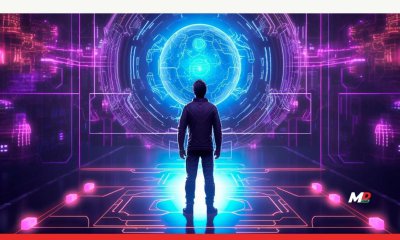

“Don’t build first and fix later”


